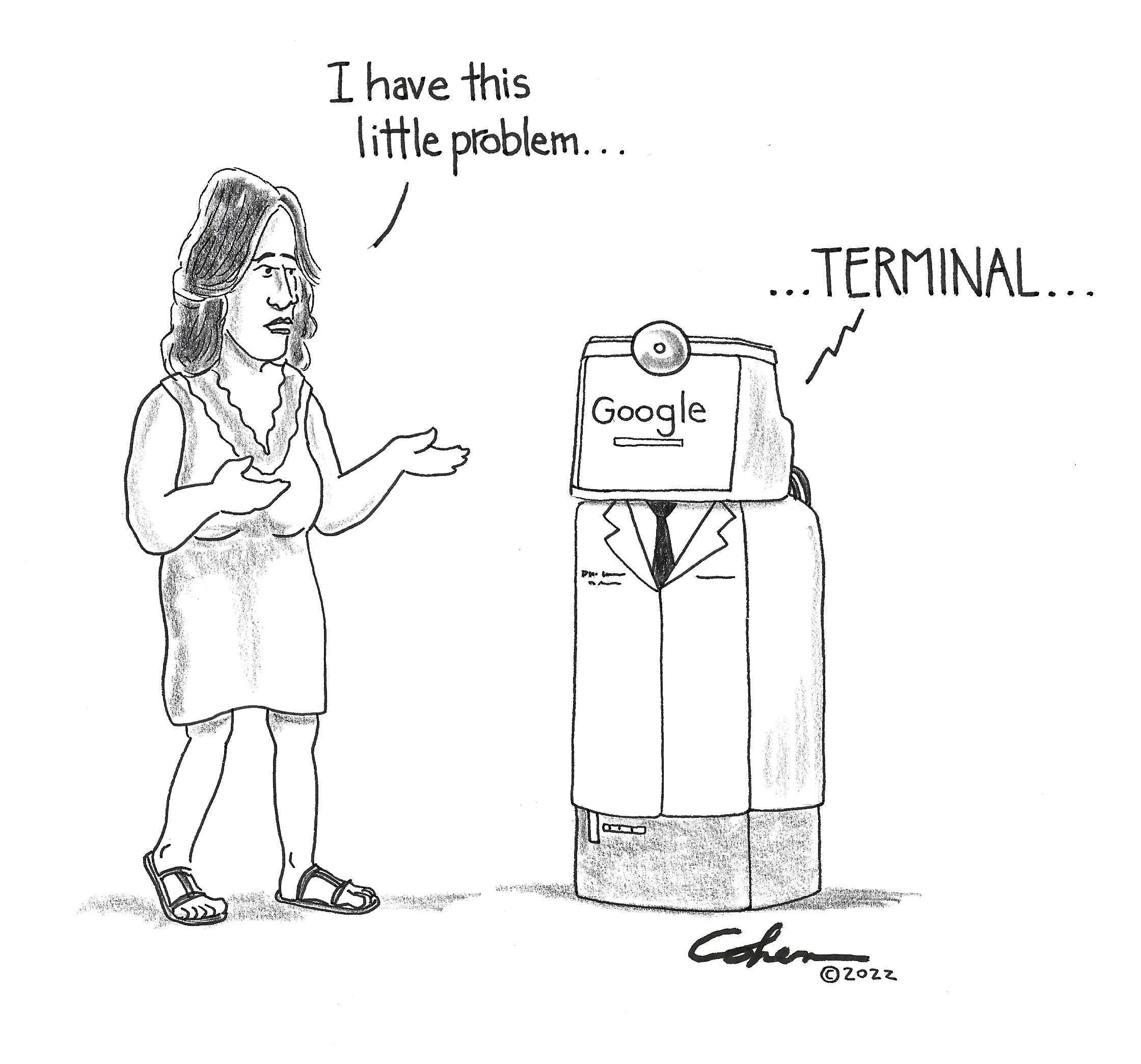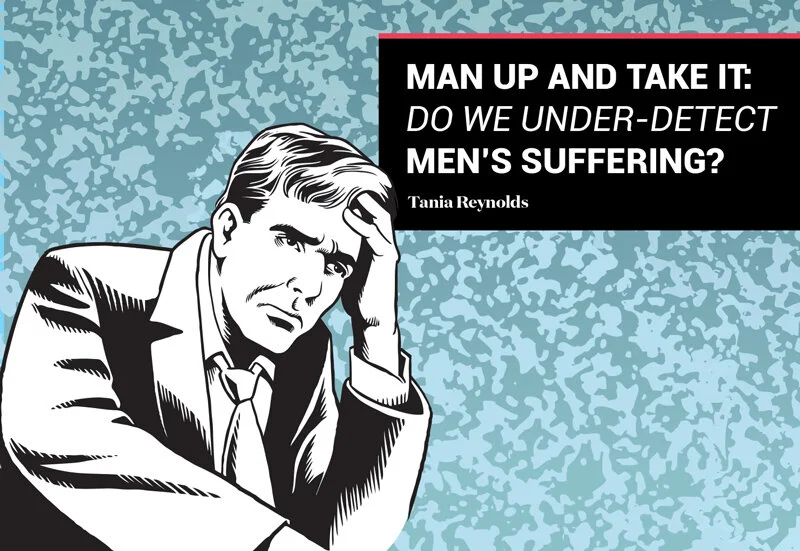My Body and Other Adventures: Hank
When I feel frustrated with my body, I often name the problem. I don’t mean I give it a description, I mean that I give it a literal name. There was a knot in my shoulder named Fred, my food baby named Aloysius, and most recently, there was Hank. I hated Hank. Hank was my very first skin tag. Not only was he incredibly persistent, he chose to sprout in a particularly awkward location. Some of you might be thinking, “What’s the big deal? Just tie some dental floss around Hank and he’ll fall right off!” If not dental floss, there are other simple solutions to the problem. Why not try apple cider vinegar, tea tree oil, nail clippers, or any other dozens of remedies to be found on Google?
The reason is simple: Hank the skin tag was located about half an inch away from my right labia. I am very squeamish as it is, and considering the intimate location of the problem, I was not about to try anything with even a slight possibility of risk. I had a vision of shaving Hank off and ending up unconscious in the shower (I’m really not good with blood) with a concussion from hitting my head on the side of the tub.
My first instinct when I discovered Hank was to assume that I had cancer (thanks, Dr. Google). My second instinct was to ignore him. He was just a cosmetic issue, he wasn’t uncomfortable, and maybe he’d just go away on his own. Since I had my annual women’s exam coming up, I decided it might be a good idea to learn what my options were.
The exam happened to be my first appointment with my amazing new doctor, a delightful woman who had me laughing through most of my pap smear — a definite first for me. She was also removing my IUD, and so while that was going on, I found myself saying, “As long as you’re down there, that’s just a skin tag, right?”
She confirmed that Hank was, indeed, a skin tag. She said that she’d normally just freeze him off, then and there, but due to his incredibly intimate location, she instead gave me a referral to an OB. I made the appointment. As an adult who still finds health insurance to be utterly novel, I was pretty proud of myself.
A few days later I met my OB. She came in, saw that I’d just had my IUD removed, and immediately asked me about family planning. Any childless woman in her 30s will tell you that this is not her favorite conversation. We got to talking, and I admitted that my husband and I were thinking about starting to try to conceive. Awkward baby talk over, I found myself naked from the waist down with my feet in some stirrups.
“Yep, that’s a skin tag. You know if you get pregnant, it’s really common to get these.”
“What! Down there?!”
“Oh yeah, see them all the time.”
She then proceeded to start freezing away at Hank, which was truly the strangest sensation in the world. Halfway through this freezing process she mentioned that for a skin tag of this type, I could have totally just tied some dental floss around it. She must think that I am much bendier than I am, also much braver.
As I left the office, I called my running buddy/bestie to let her know that I wouldn’t be running for a few days while I waited for Hank to give up the ghost. And then I filled her in on the epic of Hank — OMG did you know that it’s common to get intimate skin tags when you’re pregnant!?
Dear everyone who has ever carried a child, you may now proceed to laugh at my extreme ignorance.
My friend was equally shocked.
I can’t even tell you how much I felt betrayed by my education. This was made worse by the fact that this was also the year I learned (from another friend) that pregnancy can affect your bladder control — forever.
My friends and I have been having ongoing conversations about this kind of stuff for years, trying to learn more about our bodies and how they work. I remember being in middle school in 1998 when a whole generation learned the term “oral sex.” The Lewinsky scandal was breaking, and we were all trying to figure out what that phrase meant. The internet was a thing, but search engines less so, and none of us had yet learned to use it as a resource to answer sex questions. A group of us tried to puzzle it out. We knew what “sex” was (mostly) and we knew that “oral” had to do with the mouth. Maybe it meant kissing? Was kissing that bad?
Eventually, we did figure out the mechanics of oral sex, but the conversations kept going. During all those years of being broke and in our twenties, we were each other’s first resource for all things related to our bodies. From my friends, I learned about my options when it comes to menstrual products, and that my “winking” inverted nipple is totally normal. We compared notes on vibrators. Over and over again, my wonderfully open and honest community of female friends has helped me learn so much about my sexuality, my health, and my body. Before calling a doctor, I always checked in with my friends. And I was lucky. I was lucky to have these incredible friends who weren’t embarrassed by their own bodies.
Most of us are no longer broke or in our twenties. We are now women in our 30s, with health insurance, talking about having children or choosing not to have children. We are no longer debating why people are mad about President Clinton kissing someone. Instead, we are talking about trying to conceive “later in life.” This confederation is the reason I know that laser hair removal can be undone by hormonal changes like pregnancy. Whenever one of us acquires a new piece of relevant information (pregnancy skin tags), we still share it with the others. And when I have a weird skin tag, you can bet my friends are the first to hear about it.
On the one hand, I love that I have people to bounce ideas off of, to do product testing for me, and to support me through the fundamental weirdness of bodies. I love that we are open with each other and that as we’ve aged, we’ve come to accept our bodies with all of their idiosyncrasies.
On the other hand, I’m mad. My friends are awesome, and I’m grateful to have them as a resource, but did they have to be my first stop to find out about these things? Why was it the responsibility of my social circle to solve the mystery of my innie nipple?
One reason is that we all went through that phase of being afraid to access healthcare because our finances could not survive random doctor’s visits. If these were questions that Dr. Google or your bestie might be able to answer, that was the place to start. That mentality is so ingrained in me that I still have a hard time thinking of a qualified medical professional as my first stop. In fact, that’s only where I go when I’ve exhausted every other option. I remember cutting myself terribly once. I couldn’t find a Band-Aid big enough for the cut, I was getting woozy, I was home alone, and I called my mom a state away. She told me to go to the ER or urgent care, but I couldn’t bring myself to do it. It was just a cut after all. She finally convinced me to get a cab and go to my student health center, where I got 14 stitches. Because of money, my first instinct is still to attempt medical care on my own.
But I think a bigger reason is the failure of society. We are inundated with unhelpful messages about bodies. We are told that bodies all look and behave a certain way. Movies and romance novels give us the idea that all women should orgasm easily and from penetrative sex. Magazines and art make it seem like inverted nipples don’t even exist. Stretch marks are starting to get publicity, but mostly we just see women who “bounce back” from their pregnancies, their bodies seemingly unaltered by the experience. And yet, there’s no way around it: our bodies are weird. Our brain chemistry, our physical appearance, how our bodies react to injuries, how we have sex — it’s all unique to us as individuals. We need to talk to our kids about more than condoms and STIs, we need to tell them that their bodies will not always look like or react to the world in the same way that their friends’ bodies do.
We shouldn’t need to rely upon conversations with friends in order to find out that we are normal, that skin tags aren’t cancer, or that you really do need to go get stitches. In any universe, I’d still be talking to these wonderful people about my body, but I am also angry that I have had to rely on them for solutions to problems that should not have been their responsibility.
I have come to understand that when we experience societal dysfunction, our first instinct is to protect those around us and defend ourselves from that dysfunction. We do this on a small scale, but by reaching out to our community we create solutions, and some of them are very effective. I’ve gathered an amazing consortium of women, and together we’ve been answering unanswerable questions about our bodies.
But what about all the people out there who don’t have a robust community they can turn to? What about the young women growing up in sex-negative religious groups, who don’t have decent sex ed in schools, who aren’t lucky enough to find friends like mine? Are they left alone with Dr. Google attempting to tie dental floss around their surprise intimate skin tag? My community has filled that gap for me, but that doesn’t mean that we should assume that everyone will be blessed with the same gift. If we want to help all those women out there who are still broke and in their twenties, who don’t know the difference between a cyst and a skin tag, and whose only knowledge about family planning is based on myths and misinformation gleaned from political rhetoric, then we need to ensure that easy and affordable access to real information (including better mandatory sex education in public schools) — and yes, affordable medical care — is available to all.
No woman should have to be so resigned to having a skin tag that she gives it a name.
Published Mar 18, 2021
Updated Mar 6, 2024
Published in Issue IX: Community












